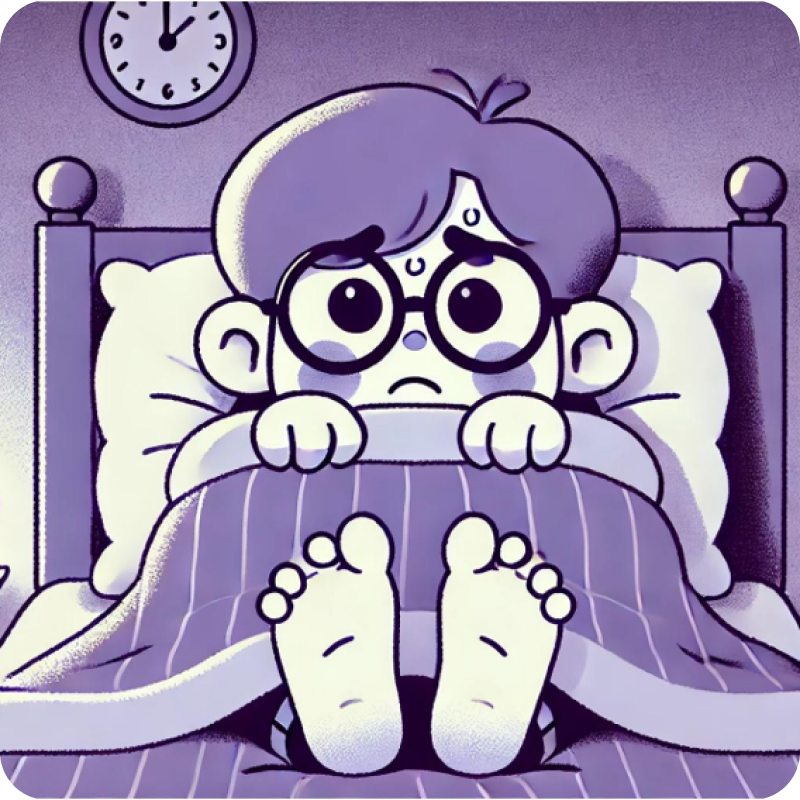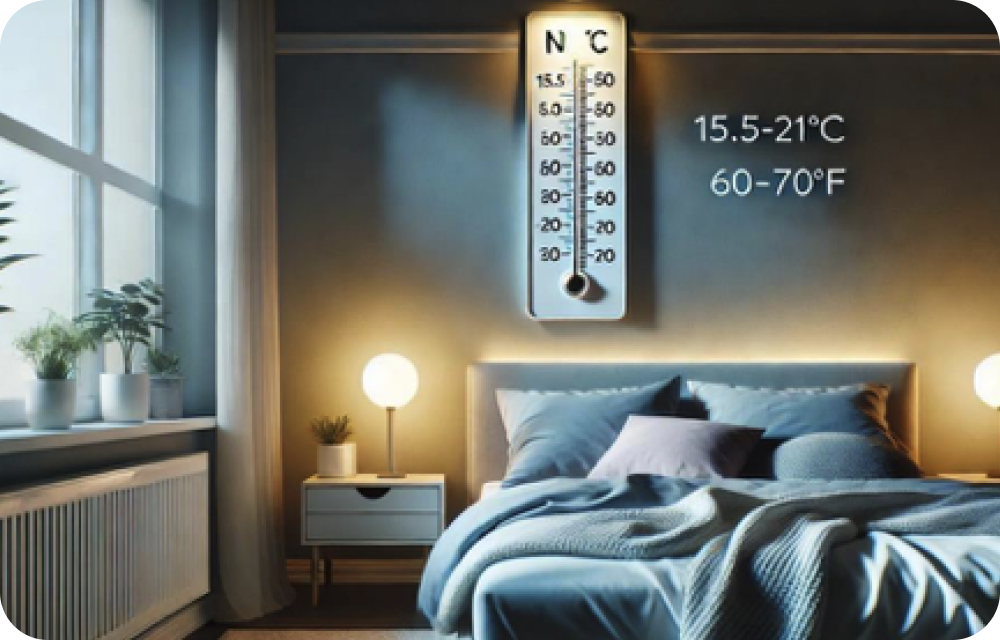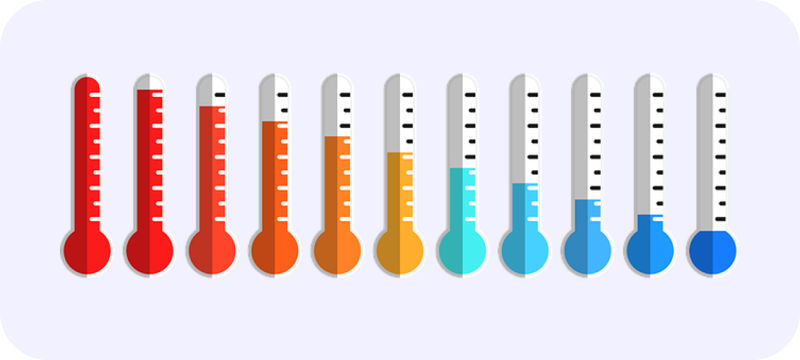RESEARCH
DIARY_

03
Impact of temperature on sleep

The circadian rhythm, which the sleep
cycle is based on, is based on light and the cycle of sun– Controlled
by the suprachiasmatic nucleus located in the hypothalamus of the
brain. This is considered as the master of the body clock; It gets
cues from environmental and personal factors including the amount of
light exposure, exercise, temperature.
Body temperature is generally around 98.6 degrees Fahrenheit (37 degrees Celsius), moving about 2 degrees during the night. The temperature drops from around 2 hours before sleep also during the release of melatonin. The body temperature tends to continually fall during sleep—in the early morning, you reach a low point, which causes you to gradually warm up.
Body temperature is generally around 98.6 degrees Fahrenheit (37 degrees Celsius), moving about 2 degrees during the night. The temperature drops from around 2 hours before sleep also during the release of melatonin. The body temperature tends to continually fall during sleep—in the early morning, you reach a low point, which causes you to gradually warm up.
Temperature plays a big part in an individual's sleep. For instance,
with the same logic, an individual with chronically cold feet is at a
high risk for sleep-onset insomnia.
Hence, adjusting the temperature is a way to manipulate your brain to tell them it’s time to go to sleep.
Additionally, there is a relationship between melatonin, a sleep promoting hormone, and the heat lost. When heat lost is happened within an individual's body, there is an increase in the melatonin. This is why the lost of heat through an individual's hands and feet causes an individual tend to sleep.
Hence, adjusting the temperature is a way to manipulate your brain to tell them it’s time to go to sleep.
Additionally, there is a relationship between melatonin, a sleep promoting hormone, and the heat lost. When heat lost is happened within an individual's body, there is an increase in the melatonin. This is why the lost of heat through an individual's hands and feet causes an individual tend to sleep.


Furthermore, the temperature of your bedroom could affect your sleep.
A warmer bedroom temperature causes an individual to be sweaty and
dehydrated, which can cause discomfort and restlessness. An overly
warm bedroom temperature can also affect an individual's body’s
thermoregulation abilities, resulting in fatigue, which can cause
difficulties sleeping.
Citations
* Sleep Foundation. "What’s the Best Temperature for Sleep?" Sleep Foundation,
www.sleepfoundation.org/bedroom-environment/best-temperature-for-sleep.
* Sleepstation. "How Temperature Affects Your Sleep." Sleepstation,
www.sleepstation.org.uk/articles/sleep-tips/sleep-and-temperature/.
* Sleep Foundation. "What’s the Best Temperature for Sleep?" Sleep Foundation,
www.sleepfoundation.org/bedroom-environment/best-temperature-for-sleep.
* Sleepstation. "How Temperature Affects Your Sleep." Sleepstation,
www.sleepstation.org.uk/articles/sleep-tips/sleep-and-temperature/.



